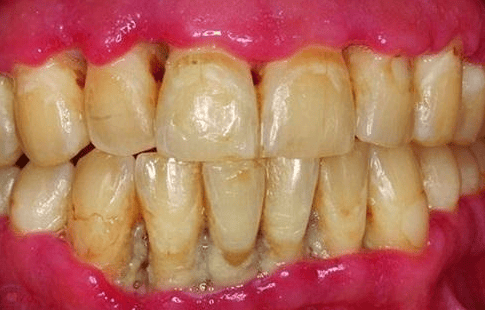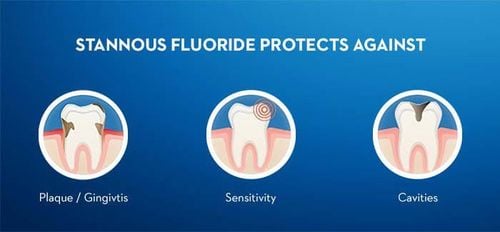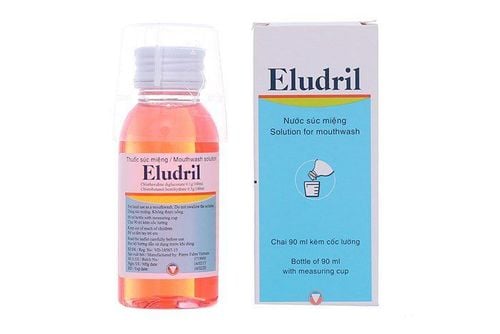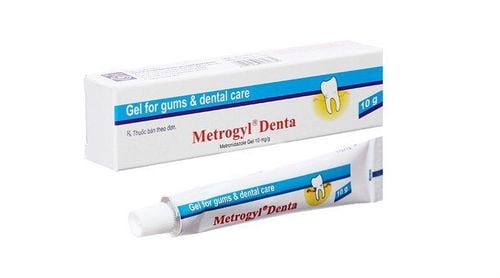This is an automatically translated article.
Bad breath or bad breath is something that makes anyone feel self-conscious and ashamed. However, certain specific odors from your breath can help diagnose your health condition.
1. Snoring
Your mouth may be dry if you snore or open your mouth while sleeping. Lack of moisture makes the mouth an ideal home for bacteria, leading to bad breath in the morning. You are more likely to snore if you sleep on your back, so it is better to sleep on your side. Snoring can also be a warning sign of sleep apnea. If you regularly snore, talk to your doctor for help, as well as instructions on how to prevent dental and other health problems caused by snoring.
2. Gum disease
Unpleasant breath smells like metal can be caused by bacteria growing under the gums/gums, leading to inflammation and even infection. Dentists often refer to this condition as periodontitis. You're more likely to get it if you smoke or don't regularly brush and floss. Gum disease also runs in families.

Viêm nha chu vừa làm giảm chất lượng cuộc sống của người bệnh vừa gây mất thẩm mỹ
3. Acid Reflux - Esophagus
This condition causes stomach acid to move the wrong way, back up into the tube connecting the throat to the stomach (esophagus). Acid reflux can cause bad breath, bad breath, and a bit of food or liquid going back into your mouth. Acid can also affect the throat and mouth, allowing odorous bacteria to breed more, leading to bad breath.
4. Diabetes
Fruity breath is sometimes a sign that the body is using fat for fuel instead of sugar (glucose). That means that a patient with diabetes is lacking in the hormone insulin and should see a doctor.

Hơi thở có mùi có thể là dấu hiệu của bệnh tiểu đường
5. Bacteria H. Pylori
This is a bacteria linked to cancer and stomach ulcers. Helicobacter pylori often causes bad breath, along with other symptoms such as nausea, heartburn, stomach pain or indigestion. Many of these symptoms go away when the bacteria are killed off with antibiotics prescribed by your doctor.
6. Respiratory infections
Colds, coughs and sinus infections can push bacteria-filled mucus through your nose and mouth. It is this that affects the breath, creating an unpleasant odor. Bad breath usually goes away after you recover from a cold.
7. Certain drugs
Some medicines can cause bad breath by drying out the mouth. Other drugs, such as heart disease nitrates, cancer chemotherapy, and tranquilizers, release chemicals that directly cause bad breath. Bad breath can also happen if you take too many vitamins.

Sử dụng quá nhiều vitamin có thể khiến hơi thở có mùi
8. Tonsillitis
If food gets stuck on the tonsils at the back of the throat, calcium can accumulate around and form tonsil stones. This condition is usually not harmful, but sometimes irritates the throat and allows bacteria to grow, thereby causing bad breath. You can remove stones with a toothbrush or cotton swab. Brushing your teeth regularly, combined with cleaning your tongue and rinsing your mouth with water after eating will help limit this phenomenon. You should tell your doctor if you have frequent tonsil stones.
9. Dehydration
When the body is not provided with enough water, you will not produce enough saliva, so the bacteria in the mouth are not cleaned. This is what causes bad breath. Conditions that affect saliva-producing glands, such as Sjögren's syndrome and scleroderma, can also cause dry mouth and bad breath.
10. Infection
An open wound inside the mouth from an accident, gum surgery or tooth extraction... can become contaminated with odor-causing bacteria. Infection is caused by not following your dentist's instructions or not taking good care of your gums. If it doesn't go away on its own, the condition will be treated with antibiotics. Therefore, you should keep your mouth as clean as possible and rinse with salt water several times per day if there is a wound or cut.

Nhiễm trùng sau nhổ răng có thể khiến hơi thở có mùi
11. Liver failure
Bad breath in liver failure is also known as Foetor Hepaticus - a sweet fruity or musty, strong musky smell. This could be a sign that your liver is not working well as the disease progresses. You may also experience other symptoms, including yellowing of the skin and eyes, caused by a build-up of the natural pigment bilirubin in the body.
12. Kidney failure
Patients with kidney failure have bad breath due to impaired waste elimination function. Bad breath is most common in end-stage renal failure (ESRD). At this time, patients are often treated with dialysis machines or need a kidney transplant.
13. Stress and depression
People with stress, anxiety or depression have a higher risk of dental health problems. The cause is the body due to the production of high levels of the hormone cortisol, which is harmful to the gums and body. Stress and depression also lead to poor dental care; More than 50% of people with stress don't brush or floss regularly. Other habits linked to stress and depression, including smoking, drinking, teeth grinding and snacking, are also responsible for bad breath.

Một nguyên nhân có thể gây hơi thở có mùi là do stress
14. Eating disorders
Anorexia, bulimia and other eating disorders not only cause serious nutritional deficiencies, but also affect oral health. The condition also triggers bacteria to multiply in the mouth, throat, and salivary glands, as well as making breath uncomfortable. In addition, food stuck in the teeth is also an environment for bacteria to grow. Therefore, you should brush your teeth and floss before going to bed to limit bad breath every morning.
To keep your teeth healthy and your breath fresh, practice good hygiene. Brush your teeth at least twice a day, floss at least once a day, rinse your mouth with a specialized antiseptic water 1-2 times a day. In addition, you also need to schedule regular dental visits and avoid smoking. These good habits not only solve bad breath, but also help prevent or early detect some diseases, thereby having timely treatment.
Customers can directly go to Vinmec Health system nationwide to visit or contact the hotline here for support.
Reference source: webmd.com













